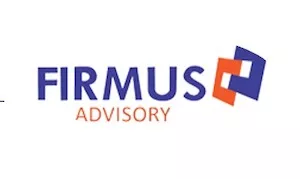- within Immigration, Finance and Banking and Tax topic(s)
- in United States
Expatriate quota in Nigeria is granted by the Ministry of Interior to foreign-owned or indigenous companies. The purpose is to enable them to employ or recruit foreign employees to legitimately work and live in Nigeria. Application for expatriate quota can be made upon commencement of business or immediately after incorporation of a company and can also be granted after an initial grant in a circumstance where a company needs to employ more expatriates.
Upon grant of expatriate quota, a Subject to Regularization (STR) Visa would be processed to help in obtaining the mandatory Combined Expatriate Residence Permit and Aliens Card (CERPAC). The Expatriate Quota enables the company to be able to process an STR Visa for its expatriates, which will enable such expatriates to obtain CERPAC. A subject-to-regularization visa is a visa issued to expatriates who have been invited to Nigeria on business or employment offers while CERPAC is a permit issued to non-Nigerians to enable them to reside in Nigeria and carry out an approved activity as specified on the permit such as employment.
The grant of an Expatriate Quota depends largely on the nature, relevance, and duration of the position to be held by the expatriate. However, the Federal Ministry of Interiors currently issues Expatriate Quotas for a period of two (2) years in the first instance, renewable biennially for two consecutive times within a lifespan of seven (7) years, except for companies in the oil and gas industry whose approval will be for an initial period of 2 years and renewable once within a life span of 4 years.
Members of the Economic Community of West African States
(ECOWAS) are exempted from obtaining CERPAC, provided that the
citizens of member countries registers with the service as
nationals of ECOWAS. Also, Expatriates directly employed by
Government are exempted from the grant of expatriate quota.
Read Also: Applying for a Nigerian Subject to Regularization
(STR) Visa 2022
REQUIREMENTS FOR OBTAINING AN EXPATRIATE QUOTA IN NIGERIA
Application for expatriate quota is done by submitting the following online:
- Duly completed registration form
- CAC Incorporation documents
- Feasibility report to be registered with CAC.
- Certified current audited account and bank reference letter
- Proposed annual salary to be paid to the expatriate worker indicating their designation, names, and duration of employment
- Joint Venture Agreement (JVA) for partnership ventures between Nigerians and foreigners, where applicable
- Company's Tax Clearance Certificate
- Lease agreement or C of O for operating premises, where applicable
- Particulars of training programs for Nigerians
- List of Nigerians working in the company to understudy the expatriates
- License or permit from government agencies where the company engages in specialized sectors such as the oil and gas sector, telecommunications, health, etc.
- Evidence of capital importation, where applicable.
- Business Permit
- Payment of prescribed fees
- Certificate of no objection
To view the article in full click here
The content of this article is intended to provide a general guide to the subject matter. Specialist advice should be sought about your specific circumstances.


